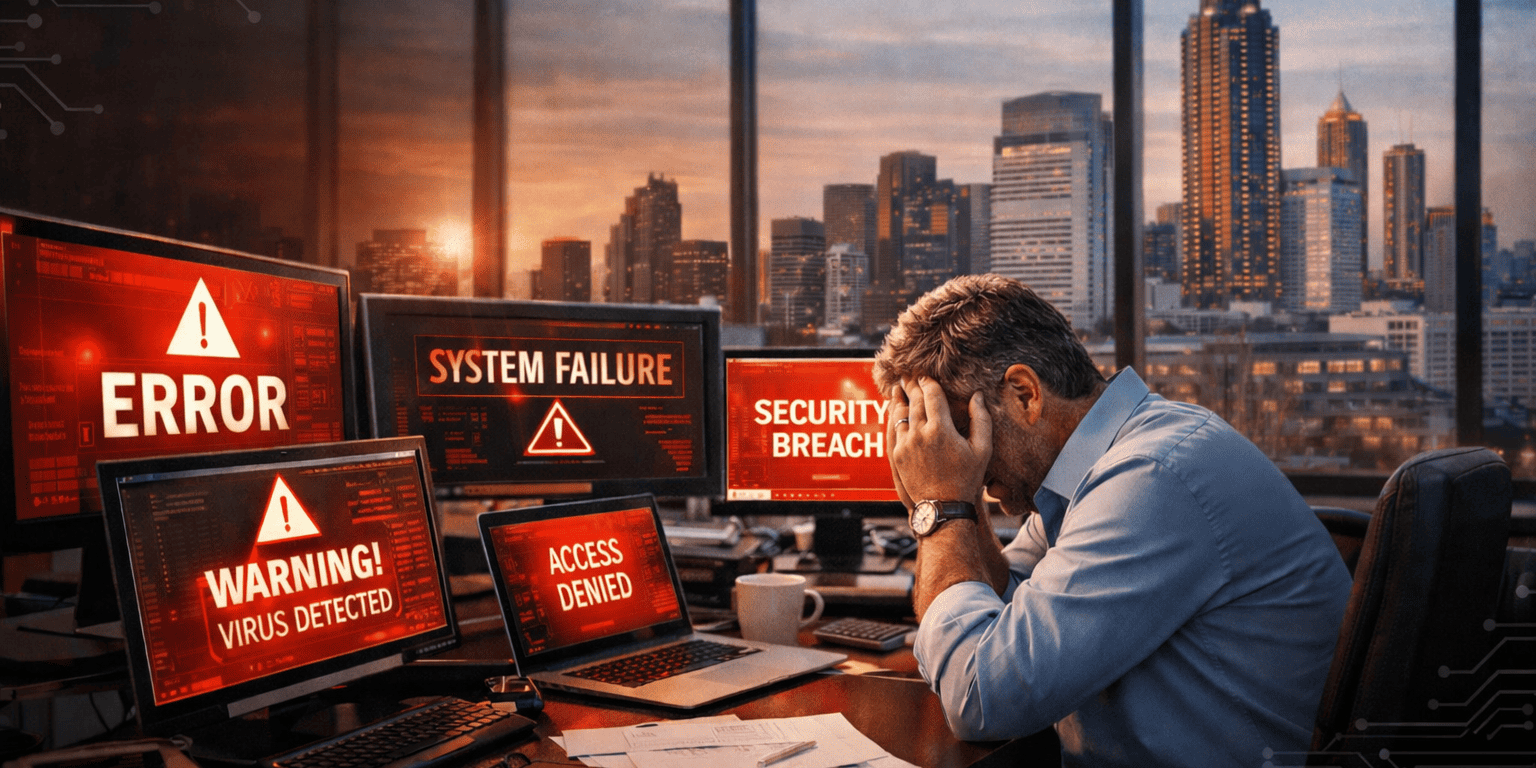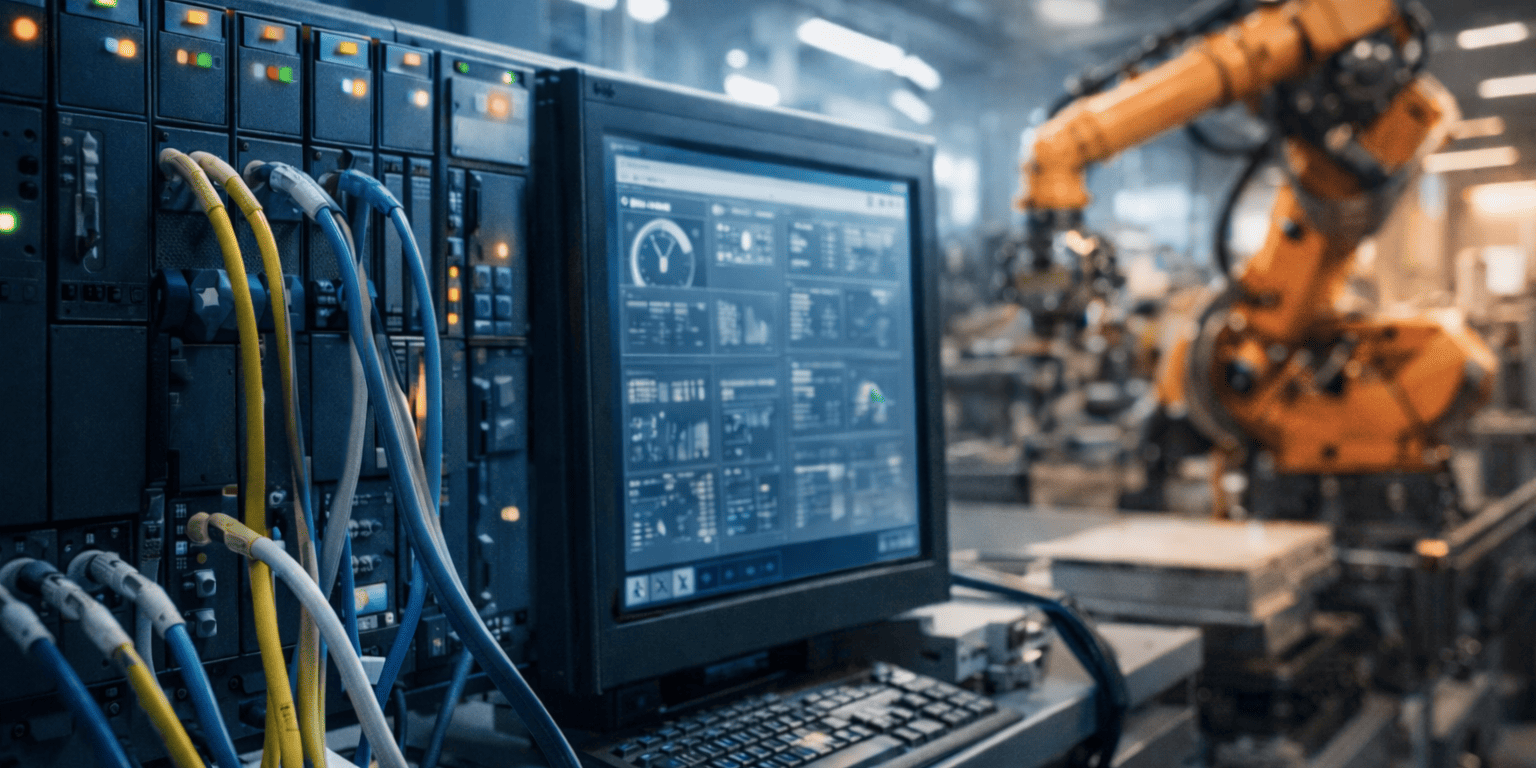Why Antivirus Isn’t Enough in 2025: The Layers of Cybersecurity Metro Atlanta SMBs Need
A few years ago, installing antivirus software seemed sufficient. You’d buy a license, let it scan your systems for viruses, and call it a day. But today’s threats don’t play by yesterday’s rules, and for Metro Atlanta’s small and mid-sized businesses (SMBs), relying on antivirus alone is like locking your front door but leaving the windows wide open.
The Evolving Threat Landscape
Cybercriminals aren’t just kids in basements anymore. They’re organized, well-funded, and using advanced tools that bypass traditional antivirus. In 2025, attackers don’t just drop viruses into your inbox. They use phishing campaigns, supply chain attacks, remote access exploits, and social engineering to sneak past your defenses.
And the scary part? Many of them aren’t even targeting large corporations. They’re focusing on SMBs because smaller businesses often have weaker defenses and slower incident response. A breach can cost tens of thousands of dollars, or even shut down a business entirely.
What Antivirus Misses
Traditional antivirus software is good at catching known malware. But most attacks today are fileless, zero-day exploits, or live-off-the-land attacks that use legitimate system tools (like PowerShell) to operate undetected. These don’t show up as viruses. They aren’t in virus databases. And antivirus doesn’t stop them.
So what do you need instead?
The Layered Security Approach (Made Simple)
Think of cybersecurity like protecting your home. You don’t just use a lock on the door. You add cameras, alarms, motion lights, maybe a guard dog. Cybersecurity should work the same way with multiple layers that work together.
Here are the key layers every Metro Atlanta SMB should consider in 2025:
1. Next-Gen Endpoint Detection and Response (EDR)
EDR doesn’t just scan for threats. It watches how devices behave. If a process suddenly starts encrypting files, EDR flags it, isolates it, and alerts your IT team. Unlike antivirus, EDR can respond in real time to threats that don’t leave a traditional footprint.
2. Multi-Factor Authentication (MFA)
Stolen passwords are the #1 way hackers get in. MFA adds a second layer, like a one-time code on your phone, to make sure only authorized users can access systems, even if their password is leaked.
3. Zero Trust Network Architecture
Zero Trust assumes no one inside or outside your network is automatically trusted. Every access request is verified, limited to only what’s needed, and continuously monitored. This is essential for remote and hybrid teams, especially in Metro Atlanta, where flexible work is on the rise.
4. Email Filtering and Phishing Protection
Many attacks start with a simple email. Smart filtering tools can identify and block suspicious links or spoofed senders before your staff clicks on them.
5. Employee Security Awareness Training
Tech can only go so far. Your team needs to know how to spot suspicious emails, avoid dangerous downloads, and follow safe practices. One small click from an uninformed employee can open the floodgates.
6. Data Backup and Disaster Recovery
No matter how good your defenses are, something might still get through. That’s why it’s critical to back up your data daily and have a plan to restore it quickly.
7. Continuous Monitoring and Alerting
Just like a security guard watches for break-ins, continuous monitoring tools watch your network for anything unusual. If an attacker gets in, the sooner you know, the faster you can respond.
A Real-World Metro Atlanta Scenario
Earlier this year, a small professional services firm based in Gwinnett County fell victim to a fileless ransomware attack. They had antivirus running, but it didn’t detect the breach because the attacker used legitimate remote management tools to access the system.
The breach encrypted their billing software and client data. It took nearly a week to fully restore operations. After the incident, they adopted an EDR platform, added MFA, and partnered with a local IT provider to implement 24/7 monitoring.
Within two months, the same EDR tool flagged another attempted intrusion, and the threat was neutralized before any damage occurred. Lesson learned: antivirus wasn’t enough.
Don’t Wait for the Wake-Up Call
Too often, SMBs only upgrade their cybersecurity after an attack. But by then, it may be too late. The good news? Layered security doesn’t have to break your budget. Many solutions are scalable for small businesses and can be rolled out in phases.
If you’re still relying on a basic antivirus license from years ago, it’s time to reassess. Your business, your clients, and your reputation deserve more.
Let’s Break It Down Together
Not sure which layers your business needs most? You’re not alone. Cybersecurity can feel overwhelming, but it doesn’t have to be. A local Metro Atlanta IT partner can help assess your risks and build a custom plan that fits your goals and budget.
Want a free security checkup?
Schedule a no-pressure call with AlphaCIS and find out how your cybersecurity stacks up.
It’s not just about protection—it’s about peace of mind.
Want to dive deeper into how state-level data laws could impact your cybersecurity approach?
Check out our last article: Georgia’s 2025 Data Laws Every SMB Must Know.

Dmitriy Teplinskiy
I have worked in the IT industry for 15+ years. During this time I have consulted clients in accounting and finance, manufacturing, automotive and boating, retail and everything in between. My background is in Networking and Cybersecurity



